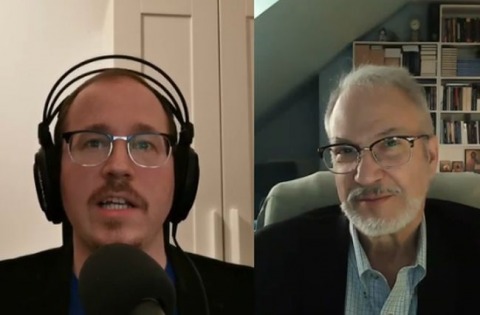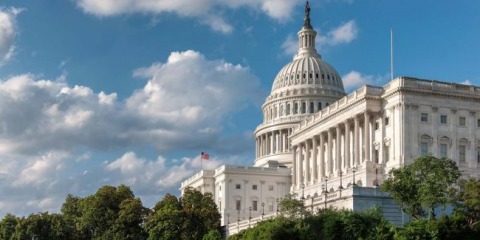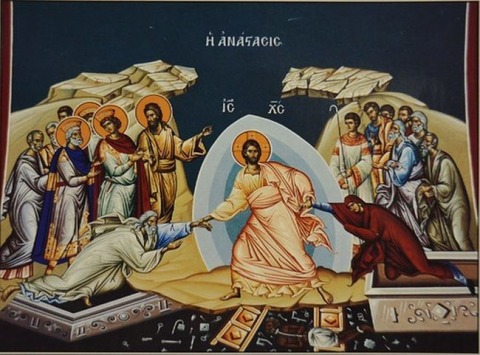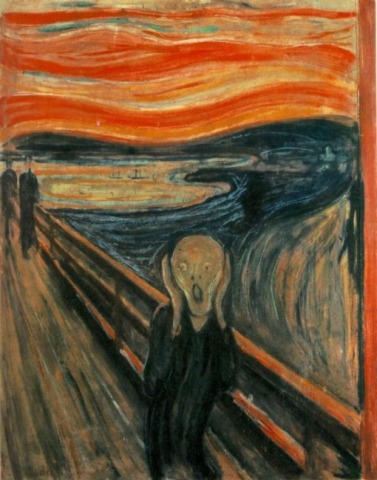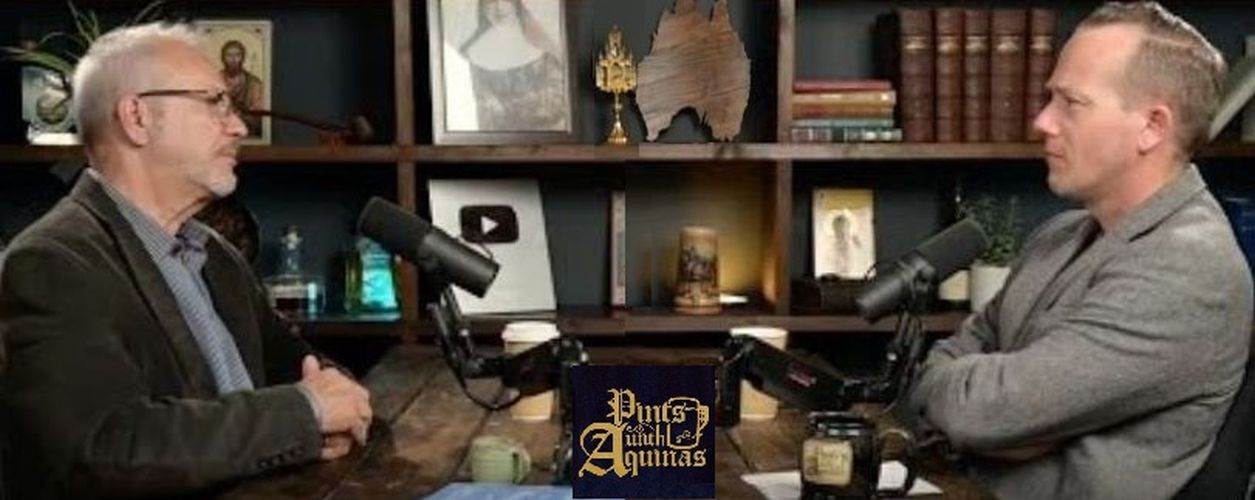
The Underground Thomist
Blog
Double HeaderThursday, 04-21-2022I am honored to post two recent interviews, one with Thomas Mirus of the Catholic Culture Podcast, the other with Sean Tehan of The Irish Rover at the University of Notre Dame. The links are underneath the pictures.
Virtue Is Not Enough, interview with Thomas Mirus, Catholic Culture Podcast.
A Conversation about How and How Not to Be Happy, transcript of interview with Sean Tehan.
|
Authority and the Common GoodMonday, 04-18-2022
Query:Thomas Aquinas connects the authority to make laws with responsibility for the common good. Surprisingly, some of my colleagues find this connection perplexing. How would you explain it?
Reply:I find that surprising too. Considering our constitutional traditions, one would have thought that only denying the connection would puzzle them. But these days we don’t understand our constitutional traditions very well either. Think of it like this. What is the first and principal concern of law? Directing things toward their purpose, the common good. Who is responsible for directing things toward a purpose? The one to whom the purpose belongs. To whom does the purpose of the common good belong? To the whole people. What follows? That the people themselves, or someone acting in their place and on their behalf, are responsible for directing things toward the common good. But to lay down directions for the common good is precisely to make laws; so the people themselves, or someone acting in its place and on its behalf, is responsible for making law. Maybe that will be enough, but let’s dig in a little. According to Thomas Aquinas, God made us free. He is fond of quoting a line from one of the Old Testament wisdom books, Sirach 15:14, "God made man from the beginning, and left him in the hand of his own counsel." This doesn’t give us permission to do whatever we wish. What it means is that unlike sub-rational creatures, which act by instinct, we must exercise judgment in order to discern and follow the good. He also likes to quote Psalm 4:6-7, where the psalmist asks “Who shows us good things?” and answers his own question by exclaiming “The light of Your countenance, O Lord, is signed upon us." He takes this as meaning that what enables us to distinguish good from evil is the light of natural reason, so that “the natural law is nothing else than the rational creature's participation [in] the eternal law.” In short, God does not jerk us around. Rather He makes us participants in His providential care for us. We are to treat each other this way too, ruling others not as though they were slaves, but as free men. You see where this is going. Both the competence to discern what is good, and the responsibility to discern what is good, rests, under God, with human beings. The competence and the responsibility go together. In domestic matters, the individual is responsible for directing himself to his own good; in the affairs of the commonwealth, the community as a whole is responsible for directing itself to the common good. Of course the manner in which the community makes laws depends on the form of government. It could make laws in a purely democratic manner, in assemblies of the people. It could instead choose one person, and rest the direction of affairs in his hands. In between these extremes are a variety of other possible modes of government. The decision among them has to be made according to prudence, in the light of circumstances. By the way, saying that the direction of affairs might be put in a single pair of hands doesn’t mean setting up a tyrant. In fact, Thomas Aquinas makes clear in his Treatise on Kingship that kings who have become tyrannical should be removed, and the removal of a king who has become tyrannical is the prerogative of the people, precisely because the appointment of the rulers in the first place is the prerogative of the people. St. Thomas is persuaded that in general, there does need to be a king, because every complex whole requires a directing part, like the cop directing traffic. Probably this is why St. Thomas assumes delegation of the community’s power in his definition of law, “an ordinance of reason for the common good, made by him who has care of the community, and promulgated.” Even so, the Latin is compatible with either “him who has” or “they who have.” And he would probably view our president as a king. This king should be a constitutional rather than absolute monarch. In fact, St. Thomas says the best form of government is “partly kingdom, since there is one at the head of all; partly aristocracy, in so far as a number of persons are set in authority; partly democracy, i.e. government by the people, in so far as the rulers can be chosen from the people, and the people have the right to choose their rulers.” The king doesn’t have to be hereditary or serve for life. In this sense, St. Thomas would probably consider our own president a king, at least so long as he does not resort to ruling tyrannically (which is always a danger, especially today). Such, he thinks, is the proper state of affairs. Indeed, “that power is called politic and royal by which a man rules over free subjects, who, though subject to the government of the ruler, have nevertheless something of their own, by reason of which they can resist the orders of him who commands.” Is that an absolute? No. There are exceptions. Although it would be tyranny to rule responsible subjects as though they were slaves, it is not tyranny to make decisions for them if they have proven too vicious or irresponsible to take an interest in the common good. Thus St. Thomas cites St. Augustine of Hippo to the effect that “If the people have a sense of moderation and responsibility, and are most careful guardians of the common weal, it is right to enact a law allowing such a people to choose their own magistrates for the government of the commonwealth. But if, as time goes on, the same people become so corrupt as to sell their votes, and entrust the government to scoundrels and criminals; then the right of appointing their public officials is rightly forfeit to such a people, and the choice devolves to a few good men." Maybe some of these thoughts will help you in discussions with your colleagues.
|
Hell Was Bound in ChainsSunday, 04-17-2022
Let no one fear death, for the Savior's death has set us free. He that was taken by death has annihilated it! He descended into hades and took hades captive! He embittered it when it tasted his flesh! And anticipating this Isaiah exclaimed, "Hades was embittered when it encountered thee in the lower regions." It was embittered, for it was abolished! It was embittered, for it was mocked! It was embittered, for it was purged! It was embittered, for it was despoiled! It was embittered, for it was bound in chains! It took a body and, face to face, met God! It took earth and encountered heaven! It took what it saw but crumbled before what it had not seen!
-- St. John Chrysostom, Paschal Homily
|
Many, Many StepsThursday, 04-14-2022
The Soviet Union used to put political dissidents into insane asylums. But there is more than one way to make political use of the issue of mental health. One path to the total state is the therapeutic state. The headline in a recent article reads “Children as Young as 8 Should Be Screened for Anxiety, Experts Recommend.” One of the quoted experts emphasizes that the screening should include everyone, not just those who are exhibiting symptoms. (Say, why not put everyone straight into therapy, just in case? It would save time.) The idea is that since the level of anxiety has increased during the pandemic, we need to do something. Yes, steps must be taken. “These guidelines are a preliminary step to many, many steps that we need to take nationally as a community of people who are concerned about our youth,” says another of the experts. Yes, many, many steps. Nationally. Because we are concerned about our youth. We are anxious. About their anxiety. But for now, just a teeny, preliminary step. Having terrified all the children, we will screen them all for terror. I have a better idea. Don’t screen them. Stop terrifying them.
|
Pints with AquinasMonday, 04-11-2022
On Thursday, I travelled to Ohio for a three hour conversation with the inimitable Matt Fradd of the Pints with Aquinas podcast. The first half was about cabbages, kings, and all sorts of things, and the second half was about my new book How and How Not to Be Happy. You can listen to it here or at the Talks Page. The stream is preceded by two minute wait, which you can use to pour your own pint. It was a lot of fun. Matt’s podcast is consistently fantastic, and if you haven’t yet discovered it, you should. I think he’s going to be breaking the three hours of this particular interview into shorter segments with topical labels which will be posted at his website later. What you see here is unprocessed, unpasteurized, and entirely natural. Last week I was also interviewed by Thomas Mirus, of the excellent Catholic Culture website, and I’ll make another announcement when that interview goes live.
|
That's Not What the Common Good MeansMonday, 04-04-2022
One of the hardest tasks in political theory is weaning people from a utilitarian view of the common good. Sometimes people tell me, “I’m not a utilitarian. I know we shouldn’t commit intrinsically evil acts for the sake of the results. But for the sake of the common good, don’t we have to make exceptions? What if we have to target innocent people to save our country? What if we have to lie to keep other citizens from voting for bad people?” That is committing an intrinsically evil act for the sake of the results. People who speak like this are really saying that there are no such things as intrinsically evil acts -- that ultimately, a good enough result can justify anything whatsoever. If we say we are only willing to commit abominations “as an exception,” we are merely saying that in other cases the resulting good just isn’t quite good enough. Besides, you can’t save your country by doing evil things. The country isn’t just a collection of people, but a moral community. If in order to vanquish our evil enemies we commit evil deeds, we convert ourselves into our enemies. That isn’t winning, it’s losing. We destroy the very thing that are fighting for. This takes us back to the common good, because justice isn’t a personal scruple or an idiosyncrasy that we can dispense with when we wish and yet remain ourselves. The most important part of the common good is clean hearts. Even if I were a utilitarian, I wouldn’t be a utilitarian. What I mean is that the results of acting on the belief that only results matter are also unacceptable. Each time we do the unthinkable, we make it more thinkable. Pretty soon it becomes routine. We lower the bar for justifying shameful deeds until it collides with the floor. We become like the streetwalker who says “I’m not promiscuous. I only have sex with men who pay me.”
|
Another One!Thursday, 03-31-2022
Gentle readers, I don’t want to tire you out with blurbs and publicity – but for those who are interested, a new interview about my new book How and How Not to Be Happy has just gone live. The interviewer is Michele McAloon of the Cross Word Podcast, and you can listen right here. I enjoyed talking with her. Have I mentioned that you can buy the book? Well, you can. (Don’t you want to be happy?)
|
